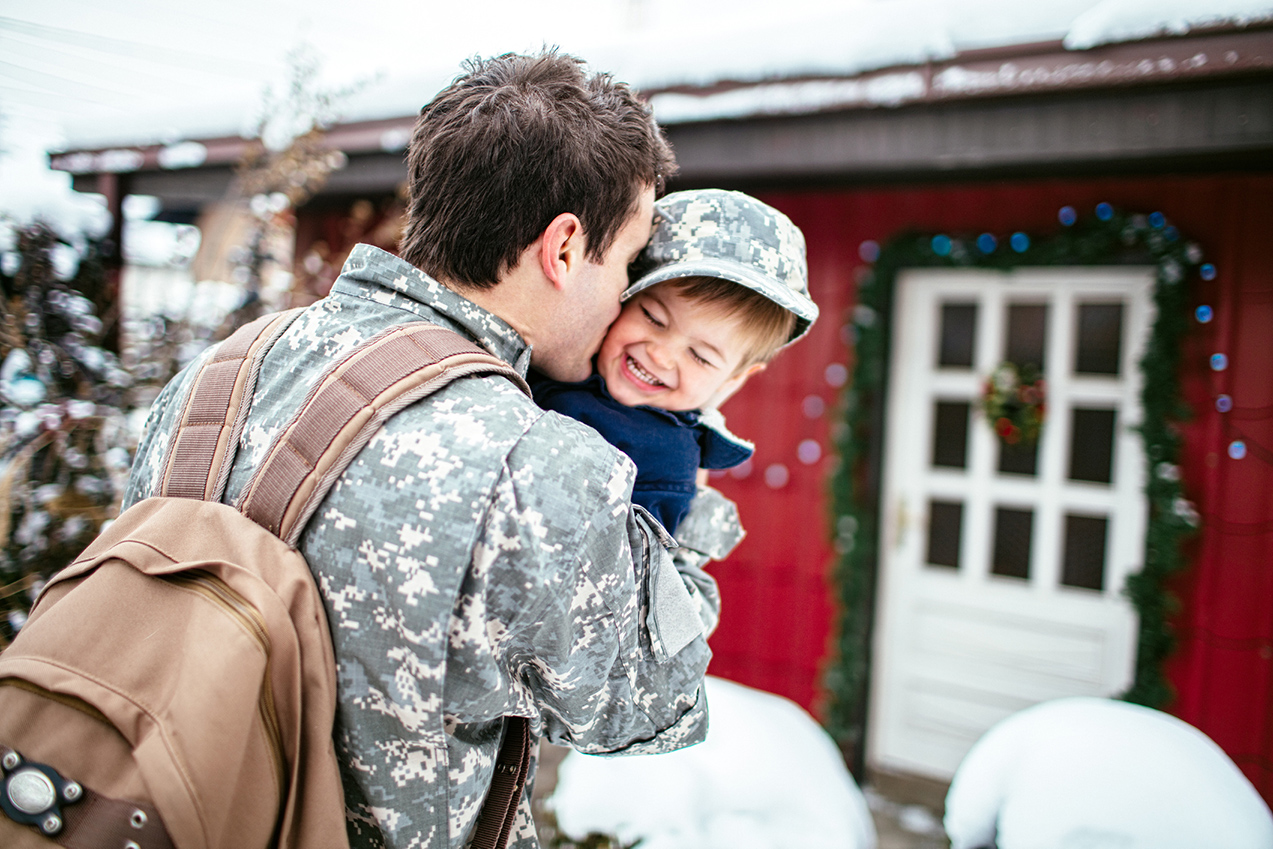Helping Veterans Cope in the New Year
Many mistakenly believe the myth that suicide and attempts increase during the holidays. Helping veterans cope with stresses in the new year, after the holidays, is important to retired service members’ year-round mental health.

Veterans Mental Health in the New Year
At the beginning of the year, most people worry about keeping their New Year’s Resolutions, getting back to work, and helping their families. However, veterans of all ages may face mental stresses (like depression and post-traumatic stress disorder) when the holidays end and loved ones return home. Moreover, veterans who survived cancer may also struggle with fears at the start of a new year.
The myth that suicide is most common during the holidays leaves many veterans alone after Near Year’s celebrations finish.
To raise awareness, this season’s Times Square New Year’s Eve celebrations included a billboard sponsored by Vets4Warriors. The free, 24/7 peer support network’s digital sign reads, “You are never alone” with information to connect.
According to the Centers for Disease Control and Prevention’s National Center for Health Statistics, suicide rates are at their lowest point in December. Conversely, rates begin to climb toward spring and again in the fall. During these times some people withdraw from family, friends, and professional responsibilities. Staying connected and knowing where to find help can save a life.
“Just because suicide rates may be lower during the holidays, it doesn’t mean that suicide and suicide attempts won’t happen. That’s why it’s important to ensure we are looking out for each other and know about the available resources to get help,” said Yancy Chandler, U.S. Army Garrison Rheinland-Pfalz Suicide Prevention Program Manager in 2017.
Post-Holiday Blues
Typically, the holidays bring certain kinds of stressful situations such as gathering in large groups and talking about the past. Veterans with post-traumatic stress disorder (PTSD) may have difficulty coping with all the activities. Loved ones can help veterans they know by being sensitive to their feelings and limiting questions about military service and combat.
After the high energy and anxiety of the holidays, people may feel mentally and physically fatigued, have a depressed mood, and find it harder to concentrate—the same symptoms of depression. Also, seasonal affective disorder, a type of depression, is most common in January and February.
This period of low mental health is sometimes called the post-holiday blues. Side effects range from mild to severe. For veterans going through cancer therapy, these effects can be damaging to a vet’s mental and physical health. Consequently, the VA encourages all eligible veterans experiencing symptoms of depression to use their free, VA-provided health benefits for mental care.
New Year’s Coping Tips for Veterans
- Do Something You’ll Love
Staying connected is the best remedy for feelings of loneliness, meaning you don’t need to wait for the holidays to reach out. Even after the holidays’ end, find time in the new year to do something fun.
Group activities not only strengthen bonds between loved ones but they’re also proven to improve mental health.
- Don’t Neglect Your Health
It can be easy to relax health habits during the holidays due to travel and vacation. Yet, an important part of staying healthy is to maintain your routine. Be sure to take all medication as prescribed, exercise as regularly as possible, drink lots of water, and get plenty of rest.
Cancer patients and survivors, especially, should follow their doctor’s advice to keep their immune systems healthy. Poor mental health can impact the performance of your immune system.
- Use Your VA Resources for Help
According to the 2020 National Veteran Suicide Prevention Annual Report, the suicide rate increased slightly from 17.5 to 17.6 deaths per day between 2017 to 2018. Moreover, suicide among veterans has increased for several years.
However, the suicide rate among veterans diagnosed by the VA Health System with anxiety, depression, or a substance use disorder decreased. The Report’s data shows the true benefit of mental health care in reducing self-harm.